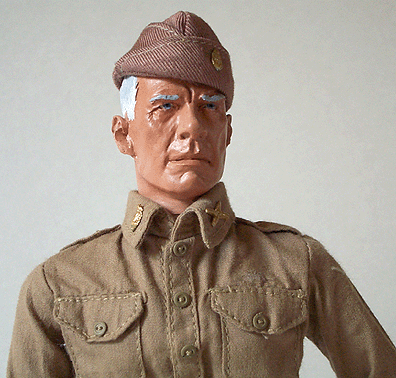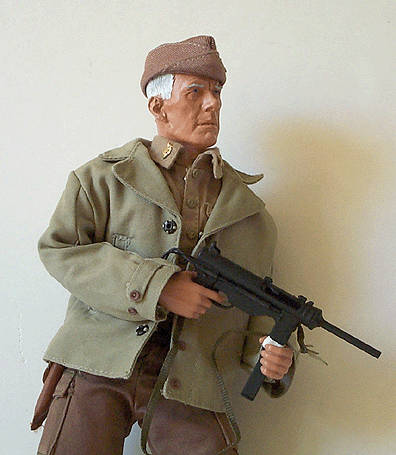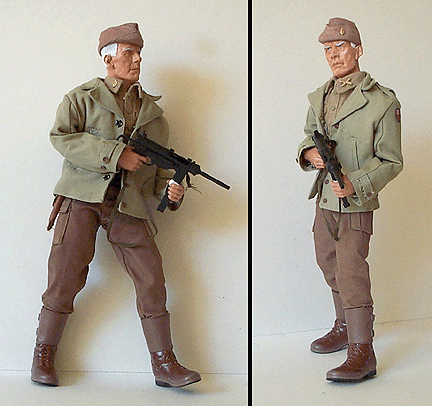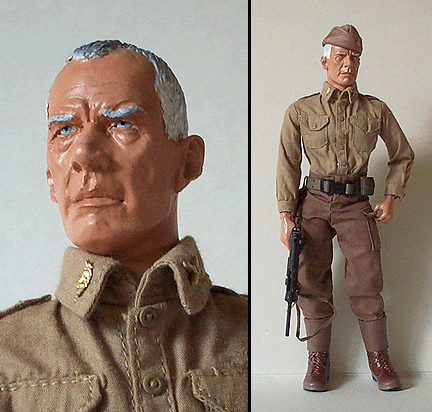| A group of conscripted convicts, most
already destined for death row, are drafted to go on a near-suicide mission
with the understanding that if the Nazis don't kill them, the U.S. Army
won't, either. In the hands of hardboiled director Robert Aldrich and a
tough-as-leather cast headed by Lee Marvin (as a troublesome U.S. Army
major), that's all the plot that's needed to make one rip-roaring World
War II action flick.

Marvin's mission is two-fold: first turn
his dozen prisoners into a fighting unit and then turn them loose on a
French chateau occupied by partying German officers. His crime-minded charges
include John Cassavetes as a chronic malcontent, Telly Savalas as a ready-to-blow
psycho, Donald Sutherland as a lame-brained lummox, and Charles Bronson
and then-just-retired NFL superstar Jim Brown as a couple of clutch performers.
The first half of the film allows the colorful
cast of character actors to have their fun as they get their tails whipped
into shape and develop shaky bonds with their commander. The second part
is all action, as the culprit commandos wreck havoc and then run for their
lives. Despite the fact that few of the "heroes" survive the bloodbath,
the message here isn't that war is hell. Rather, it seems to be: war can
be a hell of a good time... if you've got nothing to lose.

The prematurely white-haired character
star who began as a supporting player of generally vicious demeanor, then
metamorphosed into a star of both action and drama projects. Born in New
York City to Lamont Marvin, an advertising executive, and his wife Courtenay,
a fashion writer, the young Marvin was thrown out of dozens of schools
for incorrigibility. His parents took him to Florida, where he attended
St. Leo's Preparatory School near Dade City. Dismissed there as well, he
enlisted in the U.S. Marines at the beginning of World War II.
In the battle of Saipan in June 1944, he
was wounded in the buttocks by Japanese fire which severed his sciatic
nerve. He was invalided home and got menial work as a plumber's apprentice
in Woodstock, New York. While repairing a toilet at the local community
theatre, he was asked to replace an ailing actor in a rehearsal. He was
immediately stricken with a love for the theatre and went to New York City,
where he studied and played small roles in stock and Off-Broadway. He landed
an extra role in Henry Hathaway's U.S.S. Teakettle, and found his role
expanded when Hathaway took a liking to him.

Returning to the stage, he made his Broadway
debut in Billy Budd, and after a long succession of small TV roles, moved
to Hollywood, where he began playing heavies and cops in roles of increasing
size and frequency. Given a leading role in Eight Iron Men, he followed
it with enormously memorable heavies in The Big Heat and The Wild One.
Now established as a major screen villain,
Marvin began shifting toward leading roles with a successful run as a police
detective in the TV series 'M Squad'. A surprise Oscar for his dual role
as a drunken gunfighter and his evil, noseless brother in the Western comedy
Cat Ballou placed him in the upper tiers of Hollywood leading men, and
he filled out his career with predominantly action-oriented films. A long-term
romantic relationship with Michelle Triola led, after their breakup, to
a highly publicized lawsuit in which Triola asked for a substantial portion
of Marvin's assets. Her case failed in its main pursuit, but did establish
a legal precedent for the rights of unmarried cohabitors, the so-called
"palimony" law. Marvin continued making films of varying quality, always
as a star, until his sudden death from a heart attack in 1987.

Head is a custom from The Frontline. |